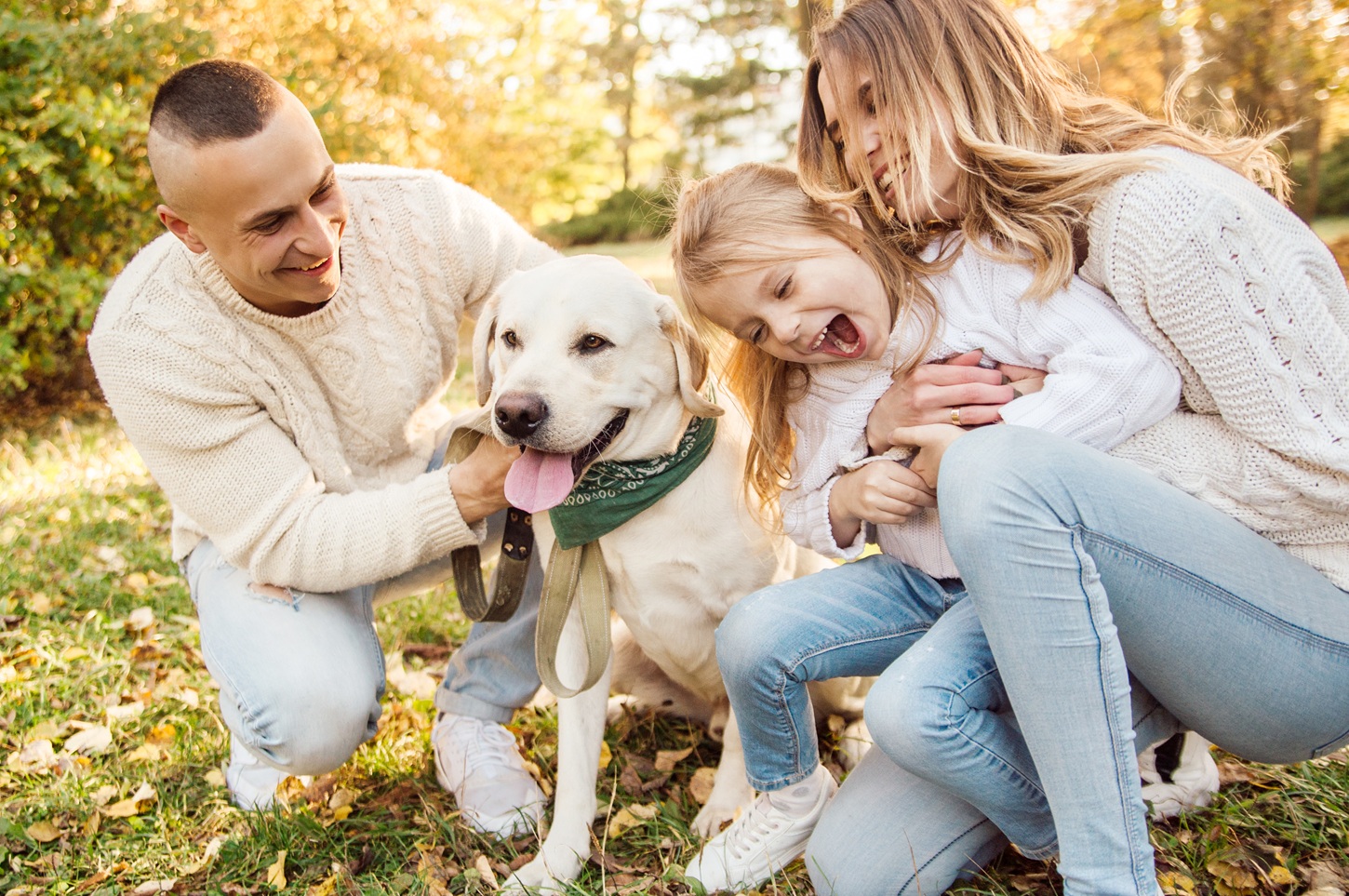17 Things You Need to Remember When You Adopt a Dog

Bringing an adorable dog home for the first time is a huge adventure—and a serious commitment. Maybe you’ve thought about adopting but worried about the unknowns—Will they adjust? Will they have issues? What if they don’t bond with you?
Of course, deciding whether you’re ready for a dog should never be a spontaneous decision (or one made just because a puppy is cute). You’re adding a new member to your family who will be with you for at least 10 to 15 years. That’s a long time… and a big commitment.
So, let’s talk about what you really need to consider before taking the leap…
1. Your Family Needs to Be Onboard
As a single, I didn’t need to consult anyone before getting a puppy. But boy, oh boy, was I surprised at the changes it had on my life. Where do I put him when I go out? How long can I stay away before he needs me? And—most importantly—where does he go when I go to work?
Before bringing a puppy home, make sure everyone in your family is truly on board. Sometimes, parents or siblings aren’t as excited about pet ownership as you are (or they’re just not ready for the responsibility).
So, have an open conversation before you bring a dog into your home. Likewise, if you do need to consult your family, feel lucky… It’s harder to look after a puppy on your own.
2. Analyze Your Finances
Today, I have three dogs: Barclay (17), Bella (15), and Hunter (13). I can tell you—they come at a significant financial cost. Barclay needs chronic ear infection medication, and all three dogs need to be bathed and have their nails clipped at the parlor once a month (which adds up fast).
Before adopting, take a hard look at your finances. Dog food, toys, vet bills, and unexpected medical costs can put a real strain on your wallet. Most importantly, consider the long-term needs of your dog as it gets older—because senior dogs often need more medical care, and that’s a commitment you must be ready for.
3. Do You Have Enough Space?
Unlike cats, dogs need room to move, play, and burn off energy—it’s essential for their health and happiness. If space is too limited, they can become restless, frustrated, or even destructive. There’s no denying, a bored dog will find ways to entertain itself… usually at your expense.
A small house or apartment isn’t necessarily a dealbreaker. But if your space is tight, think about how you’ll make up for it before bringing a dog home. Daily walks, playtime, and mental stimulation aren’t optional; they’re what keep a dog happy and balanced.
4. Commit Enough Time
Dogs aren’t just pets—they’re companions. They thrive on attention, interaction, and quality time with you. Before adopting, take a hard look at your daily routine: do you have time for walks, play, training, and just hanging out?
A neglected puppy doesn’t just stay cute—it grows into a frustrated, anxious, and poorly behaved adult dog. And once bad habits set in, they’re tough to break.
If your schedule is packed and unpredictable, ask yourself—is this really the right time for a dog?

5. Show Your Puppy They Matter
The way you treat your puppy will shape their personality. You see, love is more than just meeting their basic needs; it’s about building a bond that is usually life-changing.
Show your puppy how much they mean to you by cuddling, playing, and spending quality time together. And yes, that means belly rubs, ear scratches, and silly baby talk (which I swore I’d never do… but can’t help myself).
Ultimately, the stronger your bond, the more well-adjusted your dog will be—and the better they’ll behave in public.
6. Pick a Vet
At around age 10, Barclay, my cocker spaniel, developed chronic ear infections. My vet told me it was likely a protein allergy—probably chicken—and immediately put me on the well-known “vet food.” Except… she never checked the ingredients. Turns out, the food contained chicken too!
Your dog will not just go to the vet for emergencies; routine checkups, vaccinations, and preventive care are just as important. That means finding a vet you trust. Not just one nearby or the cheapest vet, but someone who listens and explains. A competent vet can save you time, money, and a whole lot of frustration. So, choose wisely.
7. They Need Outdoor Exercise
Some dogs are fine with a short daily walk. Others? They need space to run, play, and burn off energy—or they’ll take it out on your furniture.
A quick walk to “get it over with” won’t cut it for many breeds. You need to be ready to take them on real walks. Parks, trails, open spaces… anywhere they can stretch their legs and let out some of that boundless energy. Ultimately, don’t underestimate a dog’s need for exercise.
8. Rescue Dogs Are Not Necessarily Bad
Many people assume dogs end up in shelters because of behavior issues—untrained, aggressive, or impossible to handle. While that can be true in some cases, it’s not the main reason.
The truth is, many of these dogs have had rough starts, but that doesn’t mean they don’t deserve a second chance. Some were abandoned. Others lost their owners. And too many have been overlooked simply because they weren’t a puppy. Sadly, the longer they wait, the harder it gets.
Likewise, many dogs are given up due to work conflicts, housing issues, or unexpected relocations (not because they were bad dogs).
So, if you’re considering a rescue, don’t assume the worst. Some of the best dogs you’ll ever meet are waiting in shelters.
9. Training Your Furry Friend
My female cocker, Bella, chewed the edges of a lower window sill when she was 12 weeks old. And I had to pay to repair it before I left the rental.
Puppies need structure from day one, or they’ll make their own rules (and trust me, you won’t like them). House-training isn’t easy. It takes patience, consistency, and effort—whether it’s potty training, socializing, or setting household rules.
Likewise, if you don’t want your skirting boards, furniture, and shoes to become their next chew toy, get teething chews. Because replacing your couch is way more expensive.
10. Local Laws of Puppy Adoption
Before you bring a dog home, check local laws and building rules. Some areas have breed restrictions, and certain apartments or neighborhoods don’t allow pets at all. Don’t assume—get the details upfront from the shelter (or your landlord) so you don’t end up in an avoidable legal mess.

11. What to Feed
A young puppy has specific nutritional needs, and feeding them the wrong diet can impact their growth and health. It’s not just about how much you feed—it’s about what, when, and why.
Essentially, stick to the best dog kibble and a feeding schedule based on their size, weight, and breed.
12. Pet-Proofing Your Home
Puppies don’t sit still. They explore, chew, and get into everything (especially things they shouldn’t).
But it’s not just puppies that can be destructive. If I leave a trash bag out and my golden retriever home alone for too long… I come back to trash everywhere—scattered across the lounge like a crime-scene.
Pet-proof your home to keep dangerous items like houseplants, medications, and anything you don’t want them to touch (especially trash) out of reach. If it’s on the floor or smells like food, assume your dog will get into it.
13. Your Dog May Be Scared
Your puppy isn’t just adjusting to a new home—they’re adjusting to a whole new world. The smells, sounds, and even the floor beneath their paws feel unfamiliar.
Naturally, you can expect nervousness, whining, or skittish behavior. But don’t worry—this is normal. Give them a week or two to settle in, and they’ll soon feel at home. And yes, that includes following you everywhere… even to the bathroom.
14. They May Show Bad Habits
Don’t get your hopes too high when it comes to an adoptee’s behavior. Depending on their past experiences, they may show poor habits—excessive barking, improper urination, or outright disobedience. These traits are common in rescue dogs, but don’t panic. With patience and consistency, a month of training can work wonders. Ultimately, they’ll quickly learn the rules of their new home—your home.
15. Needs Time to Adjust
As mentioned earlier, your new dog won’t feel at ease immediately. Moving to a new home with a new owner can be overwhelming. Some dogs go into shock from the sudden change, becoming withdrawn or anxious. But, again, don’t worry—it takes three to four weeks for a dog to fully adapt to a new way of life.
16. Get Ready for Extra Cleaning
Dogs bring love, joy… and a whole lot of mess. Fur on your clothes, muddy paw prints on the floor, and the occasional accident (especially in the early days) are just part of the deal.
I used to mop once a week. Then I got three dogs… now I mop like it’s my side job. If you’re a neat freak, prepare yourself—because keeping a spotless house with a dog around takes extra effort. So, invest in a good vacuum, pet-friendly cleaning supplies, and stain removers.
17. Be Prepared
There’s no such thing as being too prepared when adopting a dog. It’s a huge commitment in terms of time and money—but so worth it for your new best friend.
Most importantly, make sure you have the essentials: high-quality food, teething chews, a sturdy leash and collar, a comfortable bed, stainless steel food and water bowls, a crate (if crate training), and plenty of toys to keep them occupied. Also, consider flea and tick prevention, ID tags, and pet insurance to cover unexpected vet bills.
Ultimately, bringing a dog home isn’t just about making space in your house—it’s about making space in your life. The more prepared you are, the sooner your pup will know they belong, and the deeper your bond will grow.
Your Pet’s Best Interest, Always
At Pet Institute, we take pet care seriously. We're dedicated to transparency, impartiality, and the well-being of your pets in every article, review, and recommendation we provide. Our unwavering commitment to these principles ensures that you, our valued reader, always receive reliable and unbiased information. Let us be your trusted guide in the world of pet care and companionship.